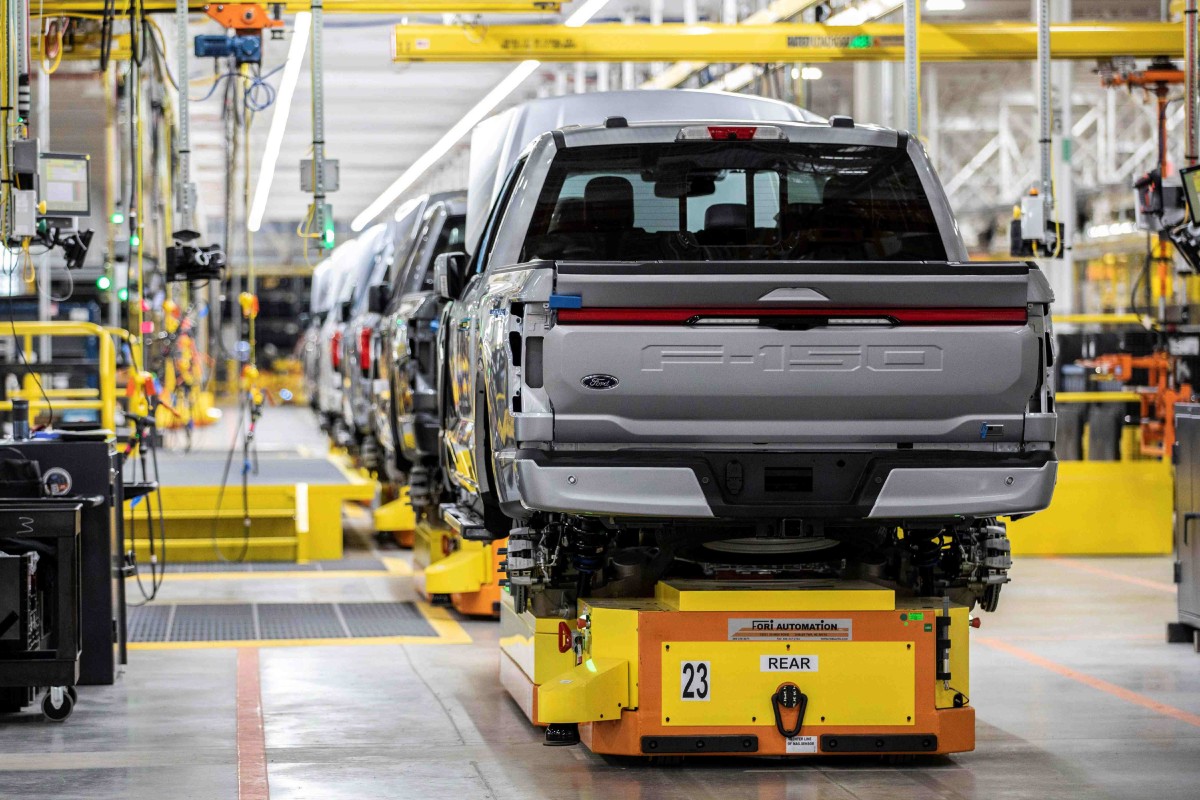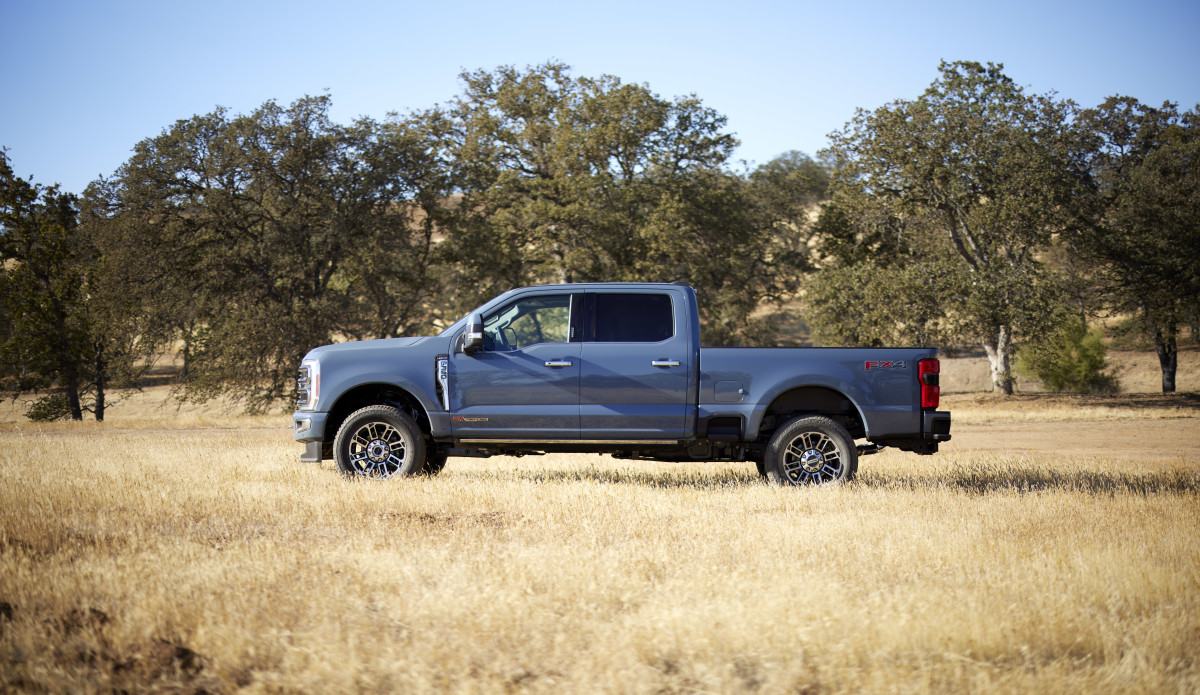
Despite CEO Jim Farley's enthusiasm about electric vehicles, navigating the avenues of the EV marketplace has been a rocky road at best for Ford (F) .
In its earnings report released in April, the Blue Oval reported that its electric car division, Model e, lost $1.3 billion in the first quarter of 2024. Meanwhile, the automaker's commercial and fleet vehicle division, Ford Pro, made $7,300 per vehicle on the nearly 400,000 vehicles it sold.
Related: Forget Tesla Superchargers, this can be the future of EV charging
Meanwhile, the electric Model e division lost $130,000 on each of the nearly 10,000 EVs it moved in the same period.
During the company's earnings call, Farley expressed that much work had to be done to make its EVs positively impact the company's bottom line.
"We're being very consistent about our discipline on profitability," Farley said. "We expect every one of our EVs to make money in the first 12 months, and that is a very disciplined process."

Ford
Trucks over electric vehicles
Part of Ford's "disciplined process" is outsizing the need to build more profitable vehicles. Unfortunately for the environment, those vehicles aren't electric vehicles but rather massive, fuel-burning, heavy-duty pickup trucks.
In a recent announcement, Blue Oval said it's investing $3 billion to boost the output of the Super Duty, the bigger, bulkier sibling of the popular F-150 pickup trucks. These trucks, equipped with up to a 7.3-liter V8 engine, are popular with tradespeople and laymen who want extra power for towing larger objects like boats.
Of the $3 billion, $2.3 billion will go towards redoing Ford's Oakville Assembly Complex in Oakville, Ontario, Canada. The plant has been offline since April when production of the Ford Edge crossover SUV ended. Ford says the funds will go towards parts stamping and assembly lines at the Canadian plant and that the plant will add 1,800 new jobs to the area.
Ford needs the extra capacity at the Canadian plant because it struggles to meet the outsized demand for its Super Duty trucks. Currently, the automaker says that production of the Super Duty is "running flat-out" at its Ohio Assembly and Kentucky Truck facilities.
Ford is growing its workforce and investing more money in factories that make Super Duty parts. The automaker is adding an additional 150 jobs at its Windsor Engine Complex while also adding 20 jobs and a $1 million investment for its Rawsonville Components Plant in Michigan. Additionally, the nearby Sterling Axle Plant will get 50 new workers and the Sharonville Transmission Plant in Ohio will receive a $24 million investment and additional overtime for its current workforce.
More Business of EVs:
- Porsche and Mercedes diverge at EV crossroads
- A Fisker-type problem is affecting an automaker known for quality
- Police officer pulls over Waymo robotaxi, is greeted by no driver or passengers
The commitment to the Super Duty reflects the tit-for-tat ruthless reality of the electric vehicle market, as automakers rush to cover their bottom lines amid consumer demand shifts, falling prices, and lower-priced competition from brands from countries like China.
While Ford's Model e division loses $130,000 on each EV, Ford makes an estimated $20,000 in profit on every Super Duty.
Prior to Ford's landmark Super Duty announcement, the Oakville plant was originally designated to house the assembly of Ford's now-delayed three-row electric SUV, which is now designated to be released in 2027.
During Ford's Q1 2024 earnings call, CEO Jim Farley said the delay was timed to match the EV market's slowing growth and give Ford more time to "take advantage of new battery chemistry and formats."
A Super Duty hybrid?
However, Ford's move to prioritize a gas guzzler over an EV does not mean that the company is not fully committed to electric cars; it simply reflects current conditions.
As for the future, Farley ironically sent a stern warning at a recent appearance at the Aspen Ideas Festival, noting that Americans will need to welcome smaller cars into their lives if Ford were to compete with its Chinese adversaries.
“We have to start to get back in love with smaller vehicles. It’s super important for our society and for EV adoption. We are just in love with these monster vehicles, and I love them too, but it’s a major issue with weight," Farley said.
“If we cannot make money on EVs, we have competitors who have the largest market in the world, who already dominate globally, already setting up their supply chain around the world. And if we don’t make profitable EVs in the next five years, what is the future? We will just shrink into North America.”
Additionally, Ford announced this week that part of its $3 billion investment will go towards "future multi-energy technology" for the Super Duty lineup.
In a statement to Road & Track magazine, the company said that this includes powertrains that do not entirely rely on a gas—or diesel-burning internal combustion engine (ICE).
"We are future-proofing our Super Duty franchise with multi-energy propulsion choices – meaning, beyond pure ICE – beginning with the next generation, and it will be built at Oakville," Ford Pro communications manager Elizabeth Kraft told Road & Track.
Ford Motor Company, which trades under F on the New York Stock Exchange was trading at $14.03 per share at the time of this writing.
Related: Veteran fund manager picks favorite stocks for 2024







